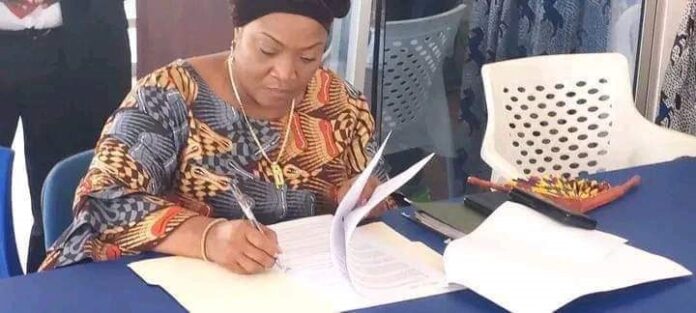LIBERIA – The Coalition agreement signed by the Congress for Democratic Change (CDC) and a fraction of the National Patriotic Party (NPP) has raised questions about the strength of the controversial political alliance ahead of the 2023 elections.
The document was signed at the ruling CDC headquarters today, with Jewel Howard Taylor, standard bearer of NPP, and the ruling party’s chairman, Mulbah Morlu signing the Coalition framework document.
However, the absence of Maryland County Senator and chairman of the NPP, James Biney, and other senior members of the party, as well as the refusal of the Liberia People Democratic Party (LPDP) to attend the ceremony, suggests that the Coalition may be facing difficulties.
Alex J. Tyler, the political leader of the LPDP, has stated that his party is not currently in a Coalition, as the process of reaching an agreement among party members has yet to be completed.
This situation comes amid dissatisfaction among senior members of the NPP over the past 5 years with the monopolistic role of the CDC in the Coalition. Just a day before President Weah’s nomination ceremony, county and district coordinators from the NPP urged their standard bearer, Vice President Jewel Howard Taylor, and chairman Senator James P. Biney, to boycott the event.
The Coalition was formed in 2017 by the CDC, NPP, and LPDP, and was created to end the 12-year rule of the Ellen Unity Party. With the recent developments, citizens are questioning the ability of a divided party to lead Liberia for the next 6 years.
However, the signing of the Coalition agreement by a fraction of the NPP and the CDC, as well as the refusal of the LPDP to attend the ceremony, suggests that the political alliance is facing challenges.
The situation is being closely watched by citizens and political observers, who are eager to see how the Coalition will address these issues and move forward in the lead-up to the 2023 elections. Credit: William Lloyd







